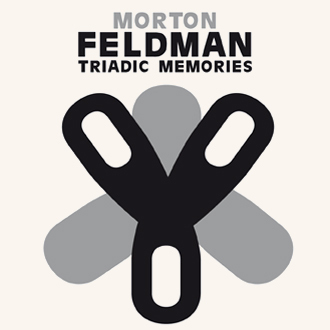At some point, all but the most obsessive completists have bemoaned a reissue. And for good reason: most of the time, it’s just not necessary. Honestly, how many iterations of Bitches Brew do we really need? Furthermore, how far down the repress line does one have to go to get the definitive version? In short, how many fucking times do I have to buy Bitches Brew? Chances are there’s a reason why Wayne Shorter’s “Feio” wasn’t on it to begin with. Of course, we all know why this happens. The curious sad sacks who, a decade ago, clung to Moz’s Bona Drag the first go ’round are the same smug sacks who likely snatched up a hard copy for their nephew last October. Times are tough; we get it. That said, it’s hard to have any real sympathy for the record industry when Wire has to recall their first three re-dos because EMI’s add-ons failed to “honour” the “conceptual clarity of the original statements.”
But at least with pazz and jop, there are a seemingly infinite number of titles with which to refill the coffers. Classical music, on the other hand, isn’t nearly as resourceful. It simply lacks the catalog. That doesn’t imply that the blue hairs are any less greedy, though. I don’t have the numbers in front of me, but they must be approaching something like a million recordings of Beethoven’s Fifth in the public record. And for every brilliant rendition by Kleiber or more historically informed performance from Roger Norrington, there’s at least a thousand and one stinkers from community pickup bootlegs to nameless, ad hoc ex-Soviet orchestras. It’s a huge problem, endemic even. And save for a few boutique labels and vanity distros, it ain’t gonna get any better. Whatevs, their loss.
Obviously, there are exceptions. To wit, I never tire of hearing the newest kids in the chamber tackle Pierrot or anything by Kagel. But as far as black notes on a white page go, we should all know by now how Mozart’s Eine kleine Nachtmusik goes. But what if those notes weren’t right to begin with? Just as infamous for alienating audiences is modern composition’s propensity for erased erratum. Hell, Pierre Boulez has been writing since the ’40s, and I doubt any of his scores are yet considered urtext. They may never be. True, Morton Feldman’s intuitively epic works are a series of oceans away from Boulez, in that they aren’t so much sovereign notes on an implacable page as they are formal suggestions in the compositional ether. And yet, he, too, wasn’t perfect.

© Johannes Marcus Vandevoorde
Apropos, we have the present re-recording of Triadic Memories. Belgian pianist Jean-Luc Fafchamps’ 1990 rendering of Feldman’s late-period solo saga has long been considered definitive. There are others — a too tentative disc from Roger Woodward, who shares one-half of the original dedication page, and Marilyn Nonken’s too protracted 90-minute version — but Fafchamps’ was one of the first and remains the gold standard. And as he notes in the liners, his first committing of the piece for Sub Rosa stands as is — there is nothing qualitatively “wrong” with it. Nevertheless, as he goes to Feldman-like lengths himself to explain, back then, he was working from an imprecise score. Long story short, Universal Edition had published major sections of Triadic Memories sans repeats, some of which Feldman wanted reheard up to 11 times. And for those familiar with Feldman’s idiosyncratic forest of numbers and signs, the repeat less travelled can make all the difference in the wood.
Thus, as Fafchamps saw it, Triadic Memories had to be “reissued.” It was just the right thing to do. (Upon seeing the “corrected” score only a year after his initial recording, Fafchamps admitted, “I was mortified.”) And all props to him here for recreating the original setting, laboratory-style, as best as possible. Using the same instrument, the same recording engineer, Jean-Luc Fafchamps has done something very few musicians get to do: re-record a substantial work in the canon, years removed, that’s better and more faithful than the original outing…and yet still sounds all their own. Comparisons to Glenn Gould’s re-up of his ’55 Goldberg Variations are apt, but just as Feldman is certainly not Bach, likewise, Fafchamps is no Gould. Here, it’s not a matter of markedly different style or radically altered approach, but instead one of intent. If pressed, however, I would venture that Fafchamps’ Feldman 2.0 is perhaps only a smidge slower this time — though, once again, not nearly as funereal as Gould’s Bach reprise of 1981.
With Morton Feldman, traditional notions of tempi and duration cease to matter anyway. Triadic Memories is an intentionally disorienting piece for performer and listener alike, composed only to scatter the structures of what was then considered Western art music in a post-Cage New York City. Ultimately, what Fafchamps improves upon with this recording is furthering Feldman’s unique notion that repetition — be it 3, 4, 5, 7 or even 11 times — needn’t be a tool of stasis and clarification. Unlike downtown New York’s first-wave minimalists who bludgeoned you into submission, at its finest hour — and in its finer hands — like the nomadic rugs and Rothkos Feldman so adored, repetition has the power to unshackle the pure from the pure merely signified. And in my book, that kind of wisdom is cause enough for any reissue, at any price.
Logan K. Young, May. 31, 2011

